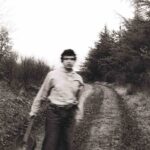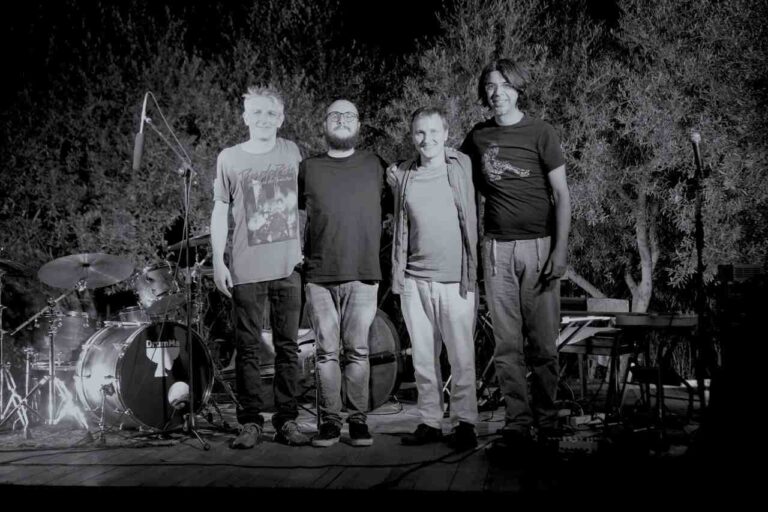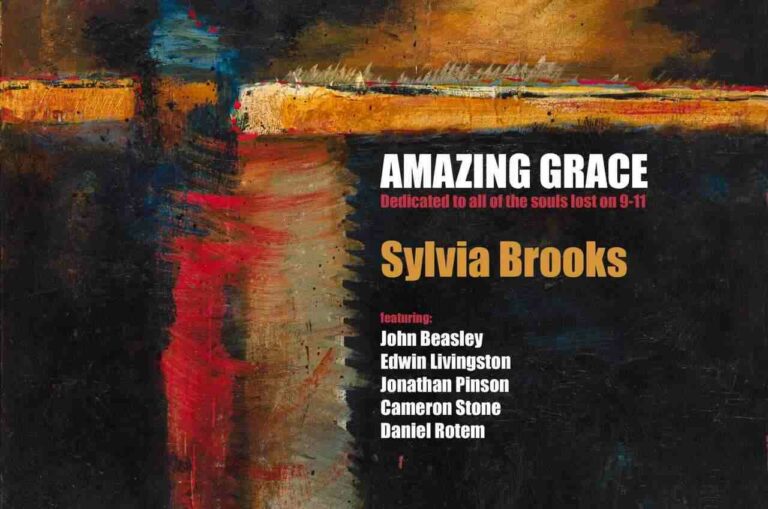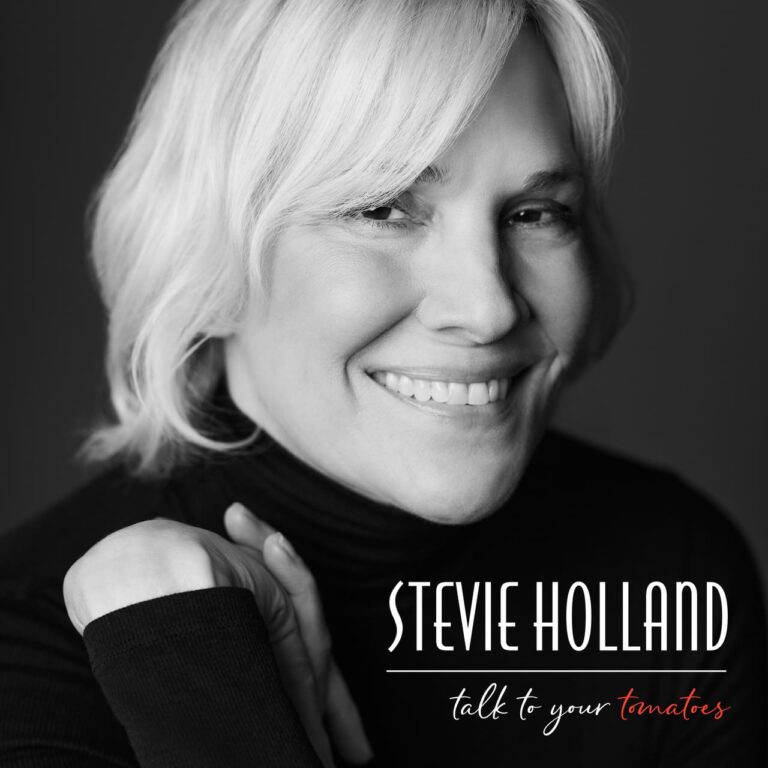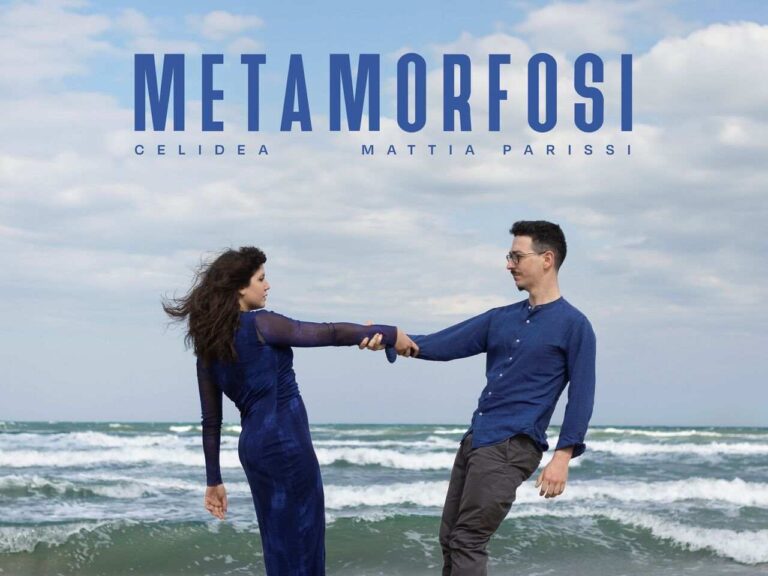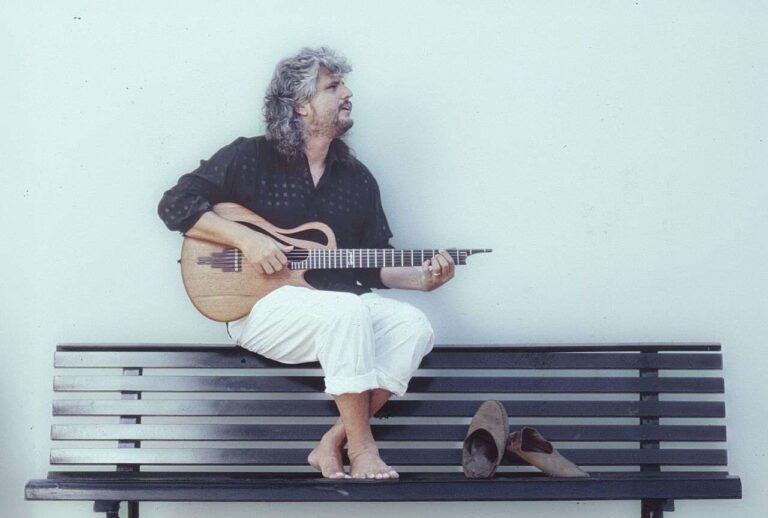Intervista di Cristina Speranza a Eric Oberstein: Lancia Eric Oberstein Productions per la Gestione Artistica e la Produzione
Intervista di Cristina Speranza a Eric Oberstein
Eric, congratulazioni per il lancio della Eirc Oberstein Production! Cosa ti ha ispirato ad avventurarti in questo nuovo capitolo professionale e dare il via alla tua propria compagnia?
Grazie! Ho pensato per anni di mettere su la mia compagnia, come un veicolo per tutte le cose che avrei amato fare. Parlo di produzione, collaborazioni e managing per vari artisti, curare la presentazione di artisti che si esibiscono, fare consulenze artistiche, insegnare il management nell’arte. Recentemente avevo finito il mio mandato come Managing Director allo Harlem Stage di New York City e, dato che lo consideravo il mio prossimo passo in avanti, mi è rivenuta l’idea della Eric Oberstein Productions. Così con l’incoraggiamento della famiglia e della mia comunità, mi sono buttato nel progetto.
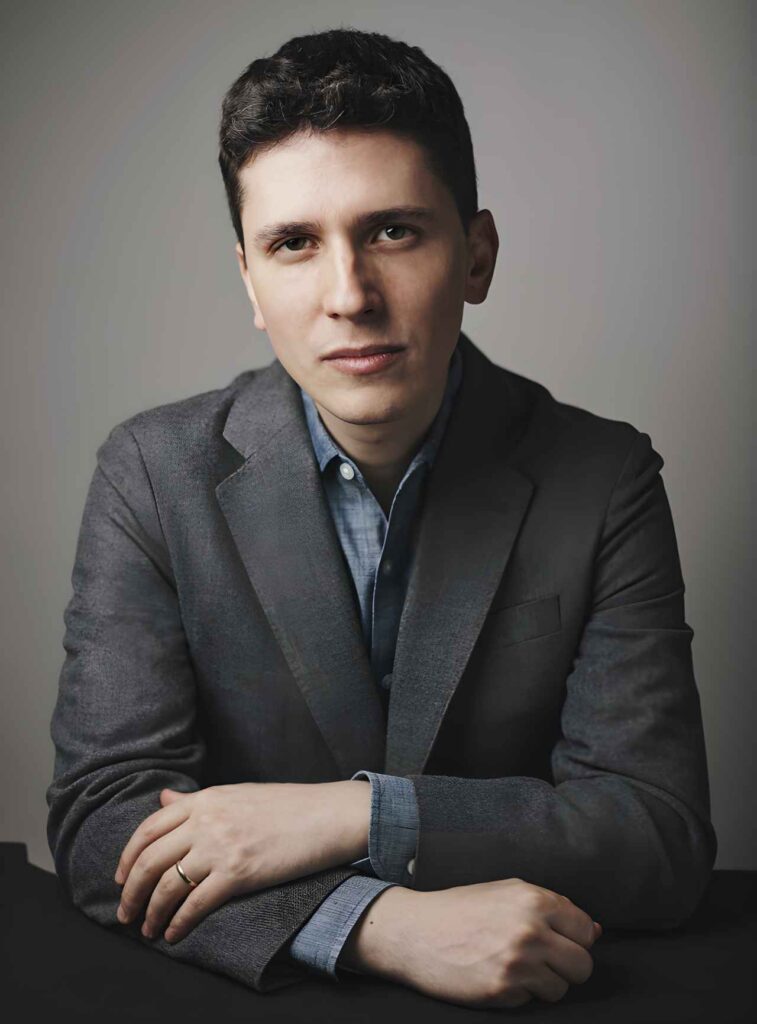
Tu vanti una carriera ricca e variegata, dalle produzioni al management artistico fino all’insegnamento. Qual’è il legame tra tutte queste differenti esperienze e la creazione della EOP?
Sono stato abbastanza fortunato da poter fare tante differenti esperienze professionali. La mia idea di base è sempre stata quella di collaborare e di guidare nella loro avventura, artisti di svariate culture e organizzazioni. Costruire un ambiente che possa aiutare gli artisti a raggiungere i loro obiettivi. Che io stia producendo un album, pubblicizzando un artista o organizzandogli una strategia pubblicitaria o insegnando ai giovani come lavorare nell’ambito dell’arte, cerco comunque di farlo con tanta empatia, fiducia e una mente analitica che porti al processo di trovare delle vie creative e sostenibili per artisti e organizzazioni per poter realizzare il loro lavoro, qualcosa di profondo ed importante per il mondo.
Intervista a Eric Oberstein Eirc Oberstein Production EOP
Puoi spiegarci, nei dettagli, di cosa si occupa la Eric Oberstein Production? Quali sono i servizi principali che offri?
La Eric Oberstein Productions è un management artistico e una compagnia di produzione, che si occupa anche di consulenza per il management artistico. Offriamo vari servizi.
- Produzione musicale: io faccio da partner creativo per i musicisti nell’ambito dei loro progetti discografici ed aiuto a sviluppare il progetto dall’inizio alla fine.
- Management artistico: faccio da partner per gli artisti che si esibiscono, li aiuto a pianificare la strategia della loro carriera e a gestire i loro affari giorno per giorno. Sto costruendo una squadra selezionata di clienti per quanto riguarda il management artistico e sono disponibile anche come consulente e pubblicità a breve termine.
- Consulenza per organizzazioni artistiche – Cura e strategia: sono consulente per le organizzazioni artistiche, porto la mia esperienza nel mondo delle arti per progetti non-profit e for-profit. Curo e produco la programmazione e le commissioni per le esibizioni artistiche, anche riguardanti le varie organizzazioni. Mi occupo della consulenza per le organizzazioni nell’ambito del territorio di cui necessitano. Ho degli specialisti in programming, produzione, istruzione, engagement con la comunità, pianificazioni strategiche, fundraising, marketing, general management, operazioni di budget e finanziarie.
- Insegnamento: insegno management nelle arti, business nelle arti, tengo corsi di produzioni creative a livello universitario e pre-universitario, tengo dei workshops.
Eric Oberstein Lancia Eric Oberstein Productions per la Gestione Artistica e la Produzione
Intervista a Eric Oberstein Eirc Oberstein Production EOP
In quale modo le tue radici e la tua professionalità hanno influenzato la tua visione di produttore e di manager artistico?
Il mio approccio come produttore e come manager artistico si fonda completamente sulle mie esperienze di musicista, così come la mia preparazione e la mia cultura. Suono il sassofono e la batteria e questo mi ha aiutato a capire quello che fanno gli artisti e ciò di cui hanno bisogno per compiere al meglio il loro lavoro. La mia priorità è quella di costruire delle basi salde e di tutto rispetto per gli artisti in modo che possa risultare creativi e portare la propria visione nel mondo. L’arte è un modo di vivere, di respirare le cose, un artista si rende vulnerabile nel condividere il proprio talento con gli altri. Io credo che collaborare con gli artisti richieda cura e impegno per supportarli le loro idee e il loro istinto.
Per quanto riguarda le mie radici, io sono cresciuto a New York, appena fuori città , a Long Island. Mia madre è cubana (nata all’Havana) e mio padre è un americano di origine ebrea. Si sono incontrati da ragazzini nel Queens. Il modo in cui sono stato cresciuto, nel rispetto per gli altri, nel valutare le altre arti e culture, ha assolutamente influenzato il modo in cui lavoro. Ho anche imparato ad apprezzare la mia famiglia multiculturale e a valutare le diverse prospettive. La parte cubana della mia famiglia ha avuto una grande influenza su di me e mi ha guidato verso molte collaborazioni che ho messo in piedi con artisti cubani e di radici latine anche se comunque ho lavorato con artisti provenienti da tutte le parti del mondo.
La scelta degli artisti che fanno parte del suo team include acts come Dafnis Prieto, Michela Marino Lerman e Kalí Rodríguez-Peña. Cosa ti ha particolarmente colpito riguardo questi artisti e qual’è la tua visione circa il loro percorso professionale all’EOP?
Sono nove anni ormai che lavoro con Dafnis Prieto. Ci siamo incontrati per la prima volta quando stavo lavorando con Arturo O’Farrill. Dafnis aveva ricevuto una commissione per scrivere nuove composizioni per la Afro Latin Jazz Orchestra, incluse “Song for Chico” e “The Triumphant Journey”. Nel 2016 ci siamo uniti per produrre il capolavoro di Dafnis, un disco che ha vinto un GRAMMY Award. Da allora abbiamo sempre lavorato insieme sugli album, tour, libri ed altro. Lui è un amico e un artista meraviglioso, generoso ed è il simbolo del tipo di collaborazione che spero di mettere in piedi con tutti gli artisti della EOP. La sua fiducia e il modo in cui crede in me mi hanno aiutato ed incoraggiato per compiere questo passo e creare l’EOP. Gli sono grato per questo.
Michela Marino Lerman l’ho conosciuta attraverso la favolosa comunità di artisti qui a NYC. Abbiamo collaborato per vari progetti durante il mio periodo allo Harlem Stage. Incluso anche il suo modo di re-immaginare la suite di Max Roach e Abbey Lincoln “We Insist! Freedom Now”, ed anche i sui programmi educativi. Michela è un’artista multisfaccettata e una leader di gruppi. Lei guida il suo gruppo, Love Movement. E’ una gioia poter collaborare con lei.
Intervista di Cristina Speranza a Eric Oberstein Eirc Oberstein Production
Kalí Rodríguez-Peña ed io ci siamo incontrati quando lui aveva 18 anni ed io stavo producendo il tour di Chico O’Farrill Afro Cuban Jazz Orchestra a Cuba (adesso siamo entrambi un po’ più grandi haha). Siamo diventati grandi amici negli anni e mi sono divertito a lavorare insieme a lui quando stavo all’Harlem Stage, quando gli hanno commissionato la “Cuban Requiem” suite. Ha presentato in anteprima la suite la scorsa settimana con la sua nuova band, The New Cuban Masters, che include artisti provenienti dalla diaspora cubana. Il sassofonista Miguel Zenón è la special guest. Questo lavoro riflette circa 65 anni della recente storia cubana, la cultura, la società. E’ un pezzo molto potente che ispira con Kalí che lo ha composto negli ultimi due anni. Credo che sia un grande manifesto artistico.
Sono entusiasta all’idea di continuare a lavorare con Dafnis, Michela e Kalí sono il marchio della EOP. Loro sono tutti artisti brillanti, multiculturali, impegnati, che lavorano per approfondire ogni forma di arte. Tutti loro, in senso metaforico, sono dei costruttori di case più grandi, nelle quali invitano altri artisti e l’audience.
La mia missione è di espandere l’universo di opportunità per ognuno di loro. Aiutarli a raccontare le loro storie, a rendere il loro lavoro più visibile al pubblico, aiutarci a realizzare i loro progetti creativi, ad esibirsi e a svolgere la loro attività in tour. Trovare risorse per tuti questi aspetti del loro lavoro. Grazie alla profonda fiducia che si instaura con loro, è grandioso poterli accompagnare nel loro percorso uno dopo l’altro. Sono perennemente in conversazione con altri artisti per gestire il management e darò comunicazione di chi sono nei prossimi mesi.
Intervista a Eric Oberstein Eirc Oberstein Production EOP
Quali sono le principali differenze, nella tua opinione, che ci sono nella scena artistica oggigiorno e quanto pensi che la tua esperienza possa aiutare?
Il mondo dell’arte è difficile da navigare. C’è tanta competizione per quanto riguarda le performance, i tour, il supporto delle etichette discografiche, la possibilità di trovare le risorse, i mass media e tanto altro. Gli artisti e le organizzazioni corrono ogni giorno dei rischi tremendi per fare ciò che fanno, spesso lavorando in un sistema economico davvero fragile.
Io ho dato priorità nel lavorare con artisti ed organizzazioni che vivono nel mondo dell’arte “sovvenzionata”. Anche se speriamo che gli artisti possano guadagnarsi da vivere con il loro solo lavoro (pensa agli streaming, alle vendite degli album, ai soldi dei biglietti dei concerti…) siamo spesso richiedendo sovvenzioni o cercando donazioni o altro aiuto filantropico per realizzare le loro visioni. Lo stesso discorso va per le organizzazioni non-profit che io supporto. Quello che fanno non è meno importante o meno valido nella nostra cultura. Significa che il loro lavoro è ispirato a portare avanti una missione, non a fare soldi.
Penso che i miei anni di esperienza che ho fatto lavorando in molti campi, come produttore, presentatore di arte, leader di organizzazioni artistiche, manager di artisti ed insegnante, mi abbiano dato una conoscenza unica della complessa e multi sfaccettata qualità di questo lavoro. Io posso mettere queste conoscenze sul tavolo, aiutare artisti ed organizzazioni a progettare per il futuro ed essere attivo nel cercare opportunità e per costruire partnership. Il successo che si acquista da un giorno all’altro non è un modello di business. Questo lavoro richiede anni e decadi di impegno. Io sono qui per il lungo termine del lavoro dei vari artisti. EOP è il lavoro che voglio fare per la vita e spero di continuare a collaborare per decadi con gli artisti con cui collaboro oggi.
Eric Oberstein Lancia Eric Oberstein Productions per la Gestione Artistica e la Produzione
Secondo te, in che modo la tua ricca esperienza professionale influenza il tuo modo di insegnare e arricchisce lo sviluppo dei tuoi studenti?
L’insegnamento è una parte importante di quello che faccio. Sebbene io senta di crescere ed imparare di più costantemente. Sono sempre stato attratto dall’insegnamento e sono molto interessato a trasmettere le conoscenze che ho ricevuto dai miei insegnanti e le mie esperienze agli altri (mia madre è stata una professoressa di ostetrica per più di trenta anni a Brooklyn, così ho avuto un grande esempio ed ispirazione in casa).
Dico ai miei studenti che tu puoi condurre una vita ricca di significato e soddisfacente con l’arte e puoi anche guadagnarci in modo da vivere in modo rispettabile (sebbene non dovresti mai metterti in questo campo con il pensiero di diventare ricco). Io insegno anche perché voglio offrire ai miei studenti dei modelli circa come comportarsi in questo mestiere, gli stessi modelli che cercavo io quando ero giovane. Mi piace invitare ogni genere di professionista dell’arte nella stanza, mostrare agli studenti che ci sono tanti differenti percorsi che si possono intraprendere nel mondo delle arti. Condivido anche storie che riguardano le mie esperienze per aiutare ad illustrare le idee delle quali parlo.
Sono convintissimo che costruire delle lezioni in classe e insegnare alle comunità ad esplorare i vari complessi argomenti che riguardano il nostro lavoro è importante e dovrebbe essere sempre un complemento alle esperienze che fai nel mondo reale con questo lavoro.
Orgoglioso dei miei studenti, sia che si dedichino ad una carriera che riguarda l’arte oppure no, possano usare le conoscenze multidisciplinari che hanno acquisito attraverso le mie lezioni per le loro vite e il loro lavoro. Sono felice che molti di loro abbiano scelto delle carriere artistiche e sono diventati una parte della mia comunità professionale.
Intervista a Eric Oberstein Eirc Oberstein Production EOP Intervista a Eric Oberstein
Cosa cerchi in un artista, quali sono le qualità fondamentali che ti portano a voler collaborare con qualcuno e quali sono gli elementi che, secondo te, definiscono l’innovazione nell’attuale scena artistica?
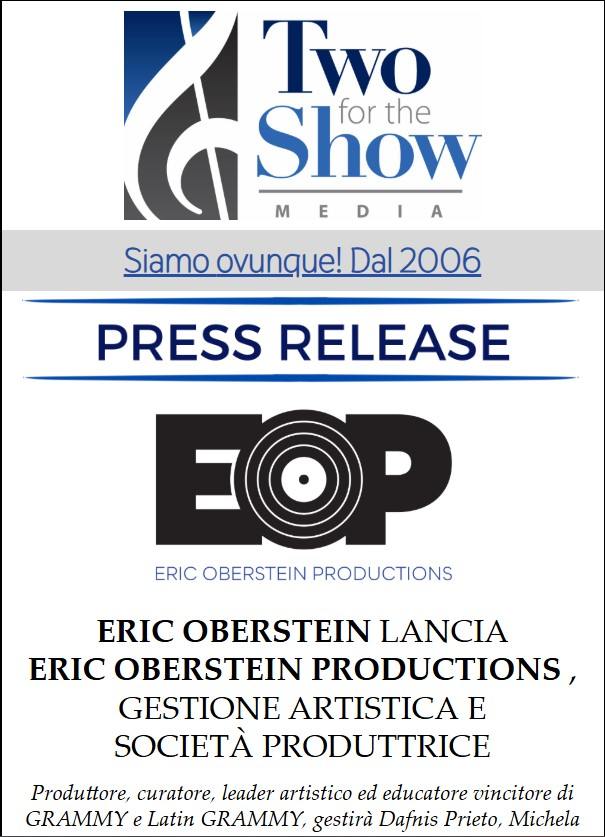
Quello che cerco negli artisti, di base, è il senso artistico, quello muove mi colpisce. Persone che tecnicamente sono brillanti, ma che, cosa più importante, hanno qualcosa da dire. E’ più che suonare le note o esibirsi in ogni parte dello show. Mi fanno venire i brividi i lavori degli artisti con i quali collaboro. Loro conoscono la storia della forma della loro arte, e cercano di spingersi anche oltre. E’ importante per me che sian o persone gentili con un cuore, e che cerchino un beneficio in comune creando partnership con gli altri.
Questo tipo di artisti sono innovatori attraverso il loro linguaggio e il loro vocabolario unici, la loro sensibilità, la loro curiosità e la loro abilità nell’aiutare gli altri e nel capire il mondo in cui viviamo in modi diversi.
Guardando al futuro della Eric Oberstein Productions, quali sono le tue principali ambizioni? Speri che la tua compagnia possa offrire un contributo al mondo delle performance artistiche?
La mia priorità al momento è quella di costruire il mio business e lanciare delle relazioni con i miei clienti, sia che si tratti di management artistico che di produzione, consulenza o insegnamento. Voglio dare il meglio delle mie esperienze ad ognuna delle mie collaborazioni e fare dei progetti in modo che le cose funzionino. Inoltre quello che cerco è nuove idee che in seguito potranno aiutare ad elevare gli artisti e le organizzazioni collegate a EOP, costruire delle comunità e, si spera, cambiare i paradigmi nel modo in cui possano funzionare.
Il mio obiettivo è quello di offrire un approccio olistico e preciso per i clienti che li aiuterà a raggiungere le destinazioni professionali che hanno in mente e che li introdurrà a nuove opportunità che loro stessi non hanno mai considerato.
Quali sono i principali consigli che daresti a qualcuno che volesse iniziare una carriera nellaproduzione o nel management artistico?
Vai ad assistere a più spettacoli che puoi. Ascolta più che puoi. Leggi e studia. Costruisci relazioni genuine con gli artisti. Costruisci i tuoi talenti e cerca di portare valore agli artisti e alle organizzazioni. Rimani curioso. E più di tutto, circondati di buone persone e collaboratori e…divertiti!
ERIC OBERSTEIN INTERVIEW
Eric, congratulations for the launch of Eric Oberstein Productions! What did inspire you to undertake this new professional chapter and start just now your company?
Thank you! I have thought about starting my own company for years, as a vehicle for all of the things that I love doing — producing, collaborating with and managing artists, curating and presenting performing arts programs, arts consulting, and teaching arts management. I recently finished my tenure as Managing Director at Harlem Stage in New York City, and as I considered my next steps, I kept coming back to the idea of starting Eric Oberstein Productions. With the encouragement of my family and community, I went for it!
You had a rich and varied career, from production to artistic management and teaching. What was the link among all these different experiences that brought you to the creation of EOP?
Intervista a Eric Oberstein
I have been fortunate to wear a variety of hats professionally. The through-line has always been a mission to collaborate with and guide adventurous, culture-changing artists and organizations, and build environments that help artists and organizations achieve their goals. Whether I’m producing an album, advising an artist or organization on strategy, or teaching young people about working in the arts, I am trying to bring empathy, trust, and an analytical mind to the process and find creative and sustainable ways for artists and organizations to do this deeply important and needed work in the world.
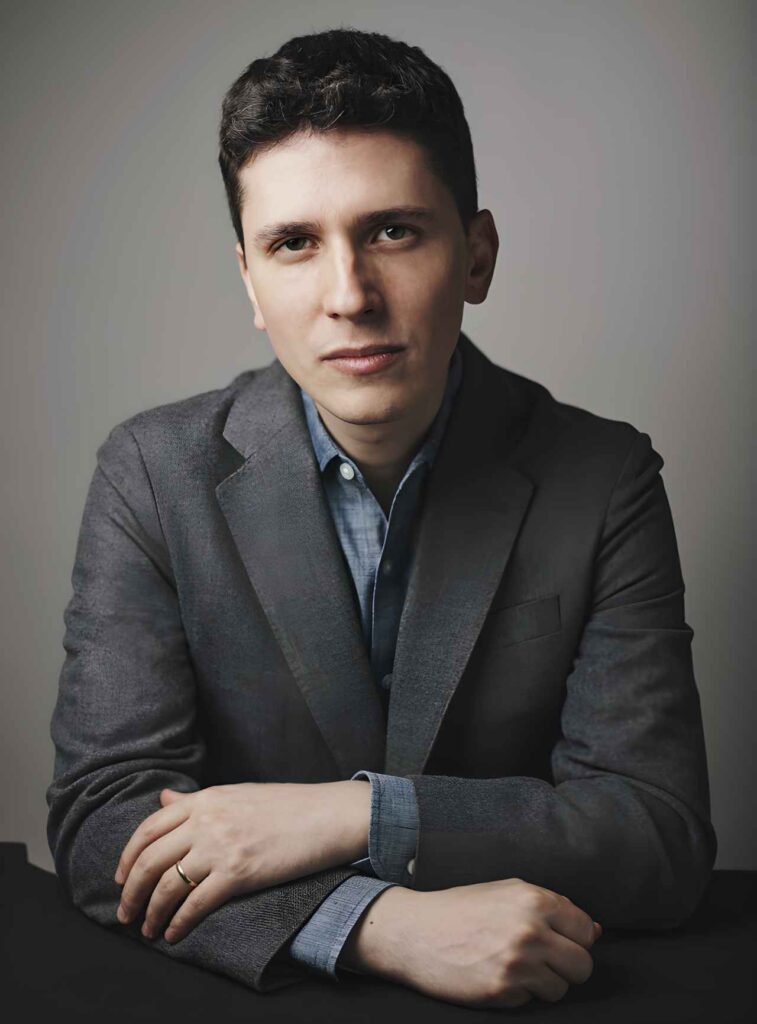
Can you explain us, in details, what Eric Oberstein Productions does? What are the main services that you offer?
Eric Oberstein Productions is an artist management and producing company, as well as an arts management consultancy. We offer four main services:
- Music Producing: I serve as a creative partner with musicians on their recording projects and help manage projects from start to finish.
- Artist Management: I serve as a partner with performing artists, helping to plan their career strategy and manage their day-to-day affairs. I am building a select roster of ongoing artist management clients, and I am also available for consultations and shorter-term advising.
- Consulting for Arts Organizations — Curation + Strategy: I serve as a consultant for arts organizations, bringing my experience in the arts across the non-profit and for-profit spaces, as well as higher education. I curate and produce performing arts programming and commissions for arts presenting organizations. I also consult with organizations on strategy and execution in their areas of need — I have specialties in programming, producing, education and community engagement, strategic planning, fundraising, marketing, general management, operations, budgeting, and finance.
- Teaching: I teach Arts Management, Arts Entrepreneurship, and Creative Producing courses at the undergraduate and graduate levels, as well as workshops.
In which way your roots and your personal musical experience influenced your vision as producer and artistic manager?
My approach as a producer and arts manager is completely informed by my experience as a musician, as well as my heritage and upbringing. I play saxophone and drums, and that helped me understand what artists do and what they need to do their best work. My priority is building safe and respectful settings for artists to be creative and bring their visions into the world. The arts are a living, breathing thing, and artists make themselves vulnerable to share their gifts with others — I believe collaborating with them requires care and a commitment to supporting their ideas and instincts.
In terms of my roots, I grew up in New York, just outside of the city, on Long Island. My mother is Cuban (born in Havana) and my father is American, of Jewish heritage — they met as kids in Queens. The way I was raised, to respect others and value arts and culture, absolutely influenced the way I work. I also learned to appreciate my family’s multiple cultures, and value diverse perspectives. My Cuban family had an especially strong influence on me, which led to me developing a love for Latin music and led to many of the collaborations I have built with artists of Cuban and Latin heritage, though I work with artists from across the globe.
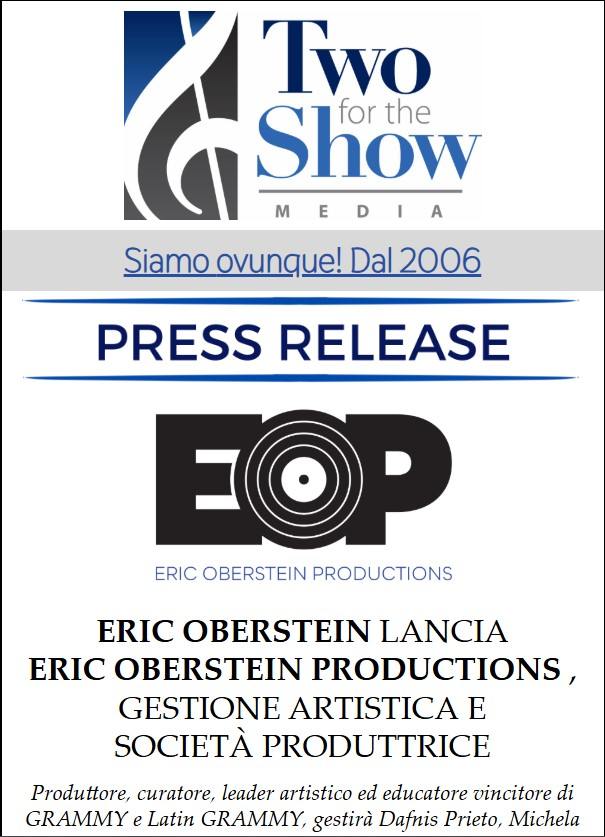
Eirc Oberstein Production
The choice of the artists of your team includes prominent acts like Dafnis Prieto, Michela Marino Lerman e Kalí Rodríguez-Peña. What particularly impressed you about these artists and what is your vision for their professional path with EOP?
I have worked with Dafnis Prieto for nine years now. We first met when I was working with Arturo O’Farrill — Dafnis was commissioned to write new compositions for the Afro Latin Jazz Orchestra, including “Song for Chico” and “The Triumphant Journey.” In 2016 we joined forces to produce Dafnis’ big band record, which went on to win a GRAMMY. Since then, we’ve worked together on albums, tours, books, and more. He is a wonderful friend and generous artist, and he is the blueprint for the type of collaborative partnership I hope to have with all EOP artists. His trust and belief in me helped encourage me to take the leap to create EOP, and I’m grateful for that.
Michela Marino Lerman and I met through the wonderful community of artists here in NYC. We collaborated on several projects during my time at Harlem Stage, including her reimagining of Max Roach and Abbey Lincoln’s We Insist! Freedom Now suite, as well as education programs. Michela is a multifaceted tap artist and bandleader, and leads her group, Love Movement. It’s been a joy to collaborate with her.
Intervista a Eric Oberstein Eirc Oberstein Production
Eric Oberstein Lancia Eric Oberstein Productions per la Gestione Artistica e la Produzione
Kalí Rodríguez-Peña and I met in Havana when he was 18 and I was producing the Chico O’Farrill Afro Cuban Jazz Orchestra’s tour to Cuba (we’re both a little older now haha). We became great friends through the years, and I enjoyed working with him while I was at Harlem Stage, where he was commissioned to create his Cuban Requiem suite. He premiered the suite last week with his new band, The New Cuban Masters, including artists across the Cuban diaspora, and featuring saxophonist Miguel Zenón as special guest. The work reflects on the last 65 years of Cuban history, culture, and society — it’s a very powerful and inspiring piece that Kalí has written over the last two years that I believe is a major artistic statement.
I’m excited to continue my work with Dafnis, Michela, and Kalí under the EOP umbrella. They’re all brilliant, culture-changing artists, as I like to say, as well as kind and generous people. They’re forward-thinking in their vision, committed, and working to deepen their art forms. They all, in a metaphorical sense, are building bigger houses, to which they’re inviting other artists and audiences.
My vision is to expand the universe of opportunities for each of them — to help tell their stories, to make their work more visible to the public, to help them realize their creative projects, help them perform and tour actively, and find resources to do all of this work. Because there is deep trust already established with them, it’s been a blast to dive in with each of them. I am actively in conversation with other artists for management and will announce those additions in the coming months.
Eirc Oberstein Production
What are the main difficulties that you see nowadays in the artistic scene and how much do you think your experience will be able to help?
The arts world is difficult to navigate, as there is a lot of competition for performances, touring, label support, funding and resources, press, and more. Artists and arts organizations take tremendous risks every day to do what they do, often working in ecosystems that are very fragile.
I have prioritized working with artists and organizations who live in the world of “subsidized art.” While we wish artists could make a living exclusively from commercial means (think streaming, album sales, and performance fees), we are often applying for grants and finding donors and other philanthropic support for their visions. The same goes for the non-profit arts organizations I support. Their work isn’t any less valid or important in our culture, it just means that their work is mission-driven, as opposed to profit-driven.
Eirc Oberstein Production Intervista a Eric Oberstein
Intervista a Eric Oberstein
I believe that my years of experience working on many sides of this field — as a producer, arts presenter, leader of arts organizations, artist manager, and educator — gives me a unique understanding of the complex and multifaceted qualities of this work. I can bring that expertise to the table, helping artists and organizations plan for the future, and be proactive in pursuing opportunities and building partnerships. Overnight success is not the business model. This work requires years and decades of commitment — I am really in it for the long haul. EOP is my life’s work, and I hope that I am still collaborating with the artists and organizations I work with today decades from now.
Eirc Oberstein Production Intervista a Eric Oberstein
In your opinion, in which way your rich experience influences your teaching and enriched the practical and professional development of your students?
My teaching is an important part of what I do. Though I feel I am constantly learning and growing, I was always drawn to teaching and I felt committed to passing the knowledge I received from my teachers and my experience on to others (my mother was also a professor of midwifery for 3+ decades in Brooklyn, so I had a great example and inspiration at home).
I tell my students that you can lead meaningful, fulfilling lives working in the arts, and you can make a respectable living doing it (though you should never get into the field to get rich). I also teach because I want to provide students with models for how to go about this work, the same models I was seeking as a young person. I like to invite all sorts of arts professionals into the room, to show students the many different paths one can pursue in the arts. I also share stories of my experiences to help illustrate the ideas I explore.
I’m a firm believer that building classrooms and learning communities to explore the many complex topics of our work is important, and it must always be complemented by real-world experience doing the work.
I am proud that my students, whether they go on to careers in the arts or not, can take the multidisciplinary knowledge they’ve acquired through my classes to their lives and work. I am pleased that many have chosen careers in the arts, and they have become a part of my professional community.
Eirc Oberstein Production Intervista a Eric Oberstein
What do you look for in an artist, what are the fundamental qualities that bring you to collaborate with someone and what are the elements that in your opinion define the innovation in the actual artistic scene?
In artists, I am looking for, as a baseline, artistry that moves me. Folks who are brilliant technically, but more importantly, have something to say. It’s more than playing the notes or performing the steps. I get goosebumps from the work of the artists with whom I collaborate. They know the history of their art form, and are also pushing it forward. It’s important to me that they’re kind people with heart, and that they’re seeking a mutually beneficial partnership with me.
These types of artists are innovators through their unique language and vocabulary, their sensitivity, their curiosity, and their ability to help others experience and understand the world in new ways.
Looking to the future of Eric Oberstein Productions, what are your main ambitions and do you hope that your company will be able to give a contribution to the world of artistic performances?
Eric Oberstein Lancia Eric Oberstein Productions per la Gestione Artistica e la Produzione
Eirc Oberstein Production Intervista a Eric Oberstein
My main priority right now is building my business and launching relationships with clients, whether for artist management, producing, consulting, or teaching. I want to bring my best self and my experience to each collaboration and project to help them succeed. Down the line I look forward to launching new ideas that will further help to elevate EOP artists and organizations, build community, and hopefully shift some paradigms in how we do this work.
My aim is to offer a holistic and thoughtful approach for clients that will help get them to the professional destinations that they envision, and that will introduce new opportunities that they never even considered.
What are the main suggestion that you would give to someone who would like to begin a career in produzione or artistic management?
Go see as many performances as you can. Listen to as much as you can. Read and study. Build genuine relationships with artists. Build your skill set and look to bring value to artists and organizations. Stay curious. Most of all, surround yourself with good people and collaborators, and have fun!
Official Website Oberstein
SEGUI ERIC OBERSTEIN SU
Intervista a Eric Oberstein Eirc Oberstein Production EOP
- Eric Oberstein Lancia Eric Oberstein Productions per la Gestione Artistica e la Produzione
- Three Days Of The Condor: La Première del nuovo video dei GAZZARA oggi su YouTube!
- Il Jazz che Incanta la Spezia: Al Via la 57ª Edizione del Festival Internazionale del Jazz
- Nuove vibrazioni jazz con Ted Rosenthal: arriva “High Standards”
- Intervista a Francesco Gazzara e Bruno Previtali-Criminal Sounds: tra groove vintage e cinema cult
- Sylvia Brooks: l’Omaggio in Jazz all’11 Settembre con Amazing Grace
- Jon Gold presenta Guanabara Eyes: Un Viaggio Musicale tra Jazz e Suoni Brasiliani
- Intervista a Joe Fiedler: il poliedrico musicista statunitense pubblica il cd “Will Be Fire”








